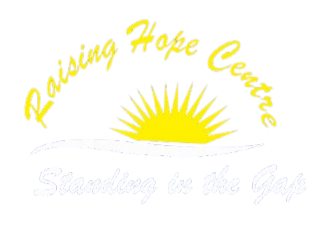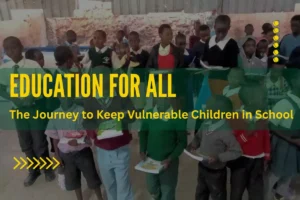Educating Refugee Children in Urban Communities
Breaking Barriers
Across cities in Africa and beyond, urban areas have become safe havens for families escaping conflict, persecution, and displacement. Yet for many refugee children, the challenges don’t end with arrival. In urban communities, access to education remains one of the greatest hurdles, barriers that stretch far beyond school gates. Educating refugee children in urban communities is not just a program, it’s a mission rooted in dignity, inclusion, and hope.
At Raising Hope Centre, we believe education is not a luxury, it’s a lifeline. It’s the bridge between trauma and transformation, between surviving today and building tomorrow. For displaced children navigating unfamiliar environments, education is the anchor that restores identity, purpose, and possibility.
We are committed to breaking down the barriers that keep refugee children out of classrooms, so they can reclaim their right to learn, grow, and thrive in the heart of urban communities.
🚧 The Hidden Challenges of Urban Refugee Children
Unlike those residing in organized refugee camps, urban refugee children often navigate their lives with far less visibility, and far fewer support systems. Living in cities means being part of a bustling, fast-moving society, but for refugee families, that can also mean falling through the cracks.
Educating refugee children in urban communities is especially challenging due to a complex web of social, economic, and legal barriers that can prevent them from stepping into or staying in the classroom.
Here’s what these children are up against:
- Lack of school fees: While public education may be officially “free,” the hidden costs, uniforms, books, transport, and lunch, can make school inaccessible for families already struggling to survive. For urban refugee children, even a pencil or pair of shoes can become a barrier to learning.
- Discrimination and stigma: In unfamiliar school environments, refugee children may face bullying or exclusion based on their language, nationality, religion, or immigration status. This sense of “not belonging” can lead to absenteeism or early dropout.
- Legal and documentation issues: Many urban refugee families lack the proper papers, such as birth certificates or residence permits, needed to enroll their children in formal education. These bureaucratic barriers further marginalize children who are already vulnerable.
- Language barriers: Refugee children from non-English or non-Swahili speaking backgrounds often begin school at a disadvantage. Without proper language support, they may struggle to keep up, fall behind, and eventually lose interest in learning altogether.
- Pressure to work: In urban refugee households where poverty is extreme, children are often expected to contribute financially. This pressure forces many to abandon school in favor of informal labor, sacrificing their education for daily survival.
These challenges mean that thousands of bright, curious, and capable urban refugee children are locked out of education, and with it, locked out of the opportunity to dream, develop, and define their futures. Unless we address these barriers intentionally, educating refugee children in urban communities will remain one of the greatest unfulfilled promises of our time. bright, curious, and capable children are locked out of education, and with it, their dreams.
Raising Hope Through Education
At Raising Hope Centre, we’re breaking these barriers through a combination of direct support, advocacy, and holistic programming. Here’s how:
1. School Supplies & Fee Support
We provide school kits, uniforms, stationery, and cover part or full tuition for refugee children in Kitengela, allowing them to enroll and stay in school. See how your support is sending children to school.
2. After-School Tutoring & Language Support
Our after-school programs offer tutoring in English, Swahili, and core subjects, helping refugee children catch up academically and adjust socially.
3. Psychosocial & Mentorship Support
Many refugee children have experienced trauma. Through counseling and mentorship, we support their mental health and build emotional resilience.
4. Advocacy for Inclusion
We work closely with schools and local authorities to promote the rights of refugee children and support their integration into public education systems.
Real Impact One Child at a Time
Take Emmanuel, a 12-year-old refugee from the DRC. After arriving in Kenya, he spent nearly two years out of school. His parents couldn’t afford uniforms, and he didn’t speak English. Today, thanks to Raising Hope Centre’s support, he’s enrolled in school, receiving tutoring, and dreaming of becoming a doctor.
“I was scared I’d never go to school again. Now, I love reading and playing with my classmates” he says with a smile.
Why It Matters
When refugee children are educated, entire communities change:
- Families become more resilient.
- Youth are empowered to lead.
- Cycles of poverty and marginalization are broken.
Education is a powerful equalizer, and urban refugee children deserve the same chance to learn, grow, and succeed as anyone else.
How You Can Help
You don’t need to be a teacher to make a difference. Here’s how you can stand with refugee children:
- Donate school supplies or sponsor a child’s fees
- Volunteer your time or skills
- Advocate for inclusive education policies
- Support our Back to School With Hope program
🕊️ Together, We Break Barriers
At Raising Hope Centre, our vision is simple: no child left behind, regardless of where they come from.
Let’s keep fighting for classrooms that welcome, empower, and uplift every child.
🎁 Donate today and help send another child back to school, with hope.
Together, we can ensure no child is left behind this school term.
Back to school. Back to hope.
Let’s make education a reality, not a privilege.





